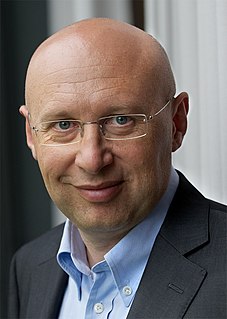Top 12 Quotes & Sayings by Stefan Hell
Explore popular quotes and sayings by a Romanian physicist Stefan Hell.
Last updated on April 17, 2025.
I think that's something a scientist can do because a scientist works at a border, at the edge of science, at the edge of knowledge, and so there's a lot of fun of reaching out and thinking about things that other people didn't think about. And so it has a kind of exploratory notion, kind of adventurous part in it.




















